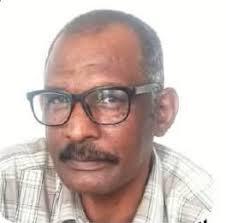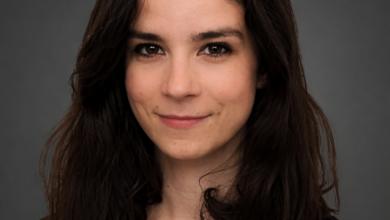Hamdouk. Belittles his Status!

Behind the news
Mohammad Wadaa
The records of the Nominations Committee testify that, at the last moment, I registered the Sudanese Baath Party’s reservations about selecting Dr. Abdullah Hamdouk for the position of Prime Minister, and although all the blocs agreed to the nomination, the Imam, may God have mercy on him, was reluctant, which is the reason that made the Sudan Call bloc the last of the blocs that approved his nomination. Until that time, the Forces of Freedom and Change (FFC) had followed the approach of consensus and unanimity in making decisions. The reservations of the Umma Party and the Sudanese Baath Party were sufficient to not agree, despite the fact that the rest of the components of the bloc (silently) accepted Hamdouk’s nomination from an early time, namely (the Sudanese Congress Party, the Federal National Party, the National Party, the Sudanese Alliance, Al-Haq Movement, and the Veteran Soldiers), However, after the approval of the late Imam, I conveyed to the nominations committee meeting the approval of the bloc, with the reservations of the Sudanese Baath Party, out of concern for the unity of the bloc and not hindering the appointment of Hamdouk as Prime Minister. On the day of Dr. Hamdouk’s arrival, he came directly to the headquarters of the Professionals Association in Garden City, and we were to receive him. I shook his hand and said that our reservation was not based on his personality, but was due to the bloc’s adoption from the beginning of the nomination of Dr. Montaser Al-Tayeb. I told him (now you are the prime minister of all Sudanese), and the relationship between us remained good, and continuous communication for the sake of the public interest, and the truth. He was committed to this relationship despite Sililk’s continuous attempts to spoil the relationship after he became Minister for Cabinet Affairs.
Dr. Hamdouk enjoyed acceptance that no prime minister before him had found, and he found almost unanimous support for him, particularly those who opposed his appointment as prime minister, and even from the Islamists, and he had the opportunity to be president of all Sudanese. Hamdouk was subjected to severe pressure and criticism even from those who used to come to him during the day and turn away from him at night. Disagreements and conflicts escalated and overthrew his first government. The party-based quota government did not succeed in averting crises. Rather, it was the cause of the crisis that toppled him on October 25. He was able and had the right to dismiss the government or at least remove the ministers who caused the escalation with the military component. I met him on October 23, and I had published an article day before that commenting on the Bakrawi’s coup under the title (See you in the next coup). The Prime Minister asked me (Is there a coup coming?) I said, “This atmosphere warns of an imminent coup.” He said, “What does it indicate?” I told him, “Dissolve the government.” He said, “I need a week.” I said, “Until that time, you must dismiss whoever addressed the armed forces and called on them to rebel against their commander.” On the evening of the same day, I was present to meet the peace parties and the Democratic Bloc. In the presence of his advisors and the director of his office, I advised him to dissolve the government, including the ministers of the Peace Bloc. Hamdouk slowed down and came what had to come.
I wished that Hamdouk would distance himself from bias towards any of the parties to the conflict, and that he would maintain his position among all Sudanese, but the indicators of this bias became clear after he presented the “Way Forward” initiative, and despite presenting an initiative for everyone, he broke his promise and attended Conference of September 8, 2021 in the Friendship Hall, which marked for the first time the division within the FFC. Hamdouk was able to complete the structures of the transitional government by establishing the commissions and the Constitutional Court, and forming the Legislative Council. It was possible to maintain the unity of the FFC, and that was for Hamdouk to adhere to by implementing the constitutional document that appointed him as Prime Minister, and to adhere to his powers stipulated in the constitutional document, and to be at the same distance from all parties, but unfortunately he did not do so.
Hamdouk backtracked from November 21 agreement with Burhan, which was the agreement that provided a rare opportunity to restore civilian rule and allow the resumption of the political process. He was subjected to pressure that he could not resist from the same group that nominated him as president in Addis Ababa to hide behind him and trade on his status, so he fell into the trap of bias again which hindered him to play any expected role and he was excessive in allowing himself to be exploited. He would not have addressed the Security Council in his capacity as the former Prime Minister, along with a group of his former ministers, refusing to allow the President of the Sovereign Council to address the General Assembly of the United Nations, and he committed a serious mistake once again by addressing the Secretary-General of the United Nations demanding that the UNTAMS mission be maintained, this time in the name of the Addis Taqaddum (Progress) Group. Hamdouk was prime minister and could not resolve the crises with the strength of his position, with UNTAMS and Volcker with him, then the logic says that he wouldn’t be able to do it now. I advise him, if he accepts the advice, to withdraw from the presidency. The “Taqaddum” group means that it detracts from him as it will not add anything to his biography, and that he maintains what remains of respect for him, and distances himself from conflicts. Hamdouk from a prime minister to an honorary head of a political group. In this way, he belittles him. This is the case,
November 30, 2023


